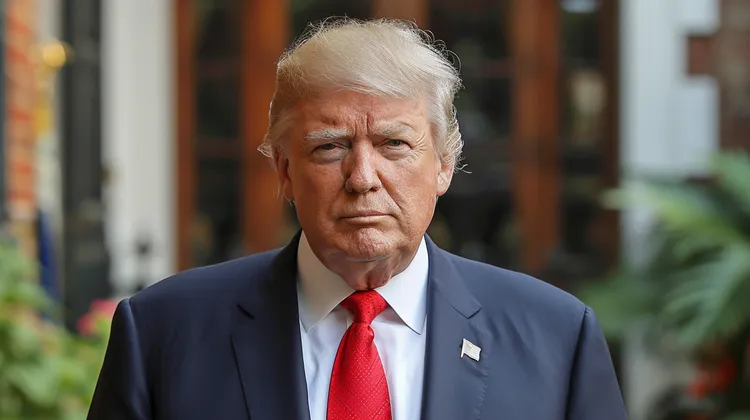
Trump Opposes CBDC if Reelected
In the ever-evolving financial landscape, the conception of Central Bank Digital Currencies (CBDCs) has become both a focal point of intrigue and a spark for political debate. As nations around the globe contemplate the integration of this digital innovation, former President Donald Trump has positioned himself as an influential voice in opposition to the concept, at least within the United States.
Trump, who has been an outspoken critic of various forms of digital currencies, views CBDCs as an extension of governmental overreach. In a bold declaration that underlines his presidential candidacy for the forthcoming election, Trump has pledged to prevent the establishment of a CBDC should he be elected to office. The former president argues that such a digital currency would encroach upon the personal freedoms of American citizens, a sentiment that resonates with many of his supporters.
The introduction of a CBDC by any nation’s central bank represents a transformation in monetary policy. It is the creation of a virtual form of a country’s currency, regulated and backed by its central financial authority. Proponents of CBDCs argue that they can enhance the efficiency and safety of financial transactions, propelling an economy towards modernization and technological advancement. Trump joins a contingent of skeptics who harbor concerns about privacy, security, and the decentralization ethos that birthed cryptocurrencies like Bitcoin.
Trump’s stance is forged in a vision that embraces traditional financial systems while remaining cautious about state-monitored digital assets. In expressing his viewpoint, he often invokes the principle of financial privacy, emphasizing the risk of government surveillance embedded within a CBDC framework. According to Trump, there must be a clear line between financial regulation and personal liberty—a line he believes CBDCs threaten to blur.
Addressing the potential implications of a US CBDC, Trump underscores its possible impact on the country’s banking system. He holds that such a digital currency might exert undue competition upon commercial banks, potentially destabilizing existing financial institutions and altering fundamental dynamics of the banking sector.
The adoption of a CBDC could redefine how monetary policies are implemented. Critics like Trump recognize that through direct control of a digital dollar, the Federal Reserve may gain unprecedented influence over the economy in ways that could stifle free market mechanisms. Such influence could also grant the government the power to enforce monetary discipline in a much more direct and possibly coercive manner.
Trump’s vocal opposition to CBDCs places him squarely against the tide of global innovation, as various countries are already in advanced stages of exploring or rolling out their own digital currencies. China’s digital yuan is perhaps the most prominent example, with the People’s Republic making significant strides toward incorporating it into its economy. This development has intensified the debate in the US as policymakers consider whether to respond in kind with their own CBDC or to take an alternative route.
During his tenure as president, Trump was known for promoting an “America First” policy, focusing on national interests and traditional economic values. His current rhetoric suggests a continuation of that philosophy, with the fight against a CBDC aligning with his overarching narrative of opposing what he views as extensive government control.
While Trump prepares for a heated election campaign, his declaration to block the advent of a US CBDC sets up a pivotal discourse within the sphere of monetary policy. It underscores the broader conflict between rapid technological change and conservative fiscal principles, a struggle that will undoubtedly invigorate discussions among economists, technologists, and policymakers alike.
Trump’s promise has ignited a conversation not just around the concept of a CBDC but around digital finance as a whole. With rising inflation and concerns about economic stability, his viewpoint garners attention from those who are wary of digitizing America’s money supply.
As Trump re-enters the political fray with a platform interwoven with resistance to a CBDC, his vision for America’s economic future is clear. He envisions a nation that values cash, defends free markets, and is cautious of digital currencies on a spectrum of privacy and autonomy.
Whether Trump’s vision will resonate with the voting public and policymakers remains an open question as the US grapples with the challenges and opportunities of digital currency innovation. As the race to the White House picks up momentum, the debate over a CBDC in the US is not only a matter of financial discussion but an emblematic issue of the broader ideological divides that shape American politics today.